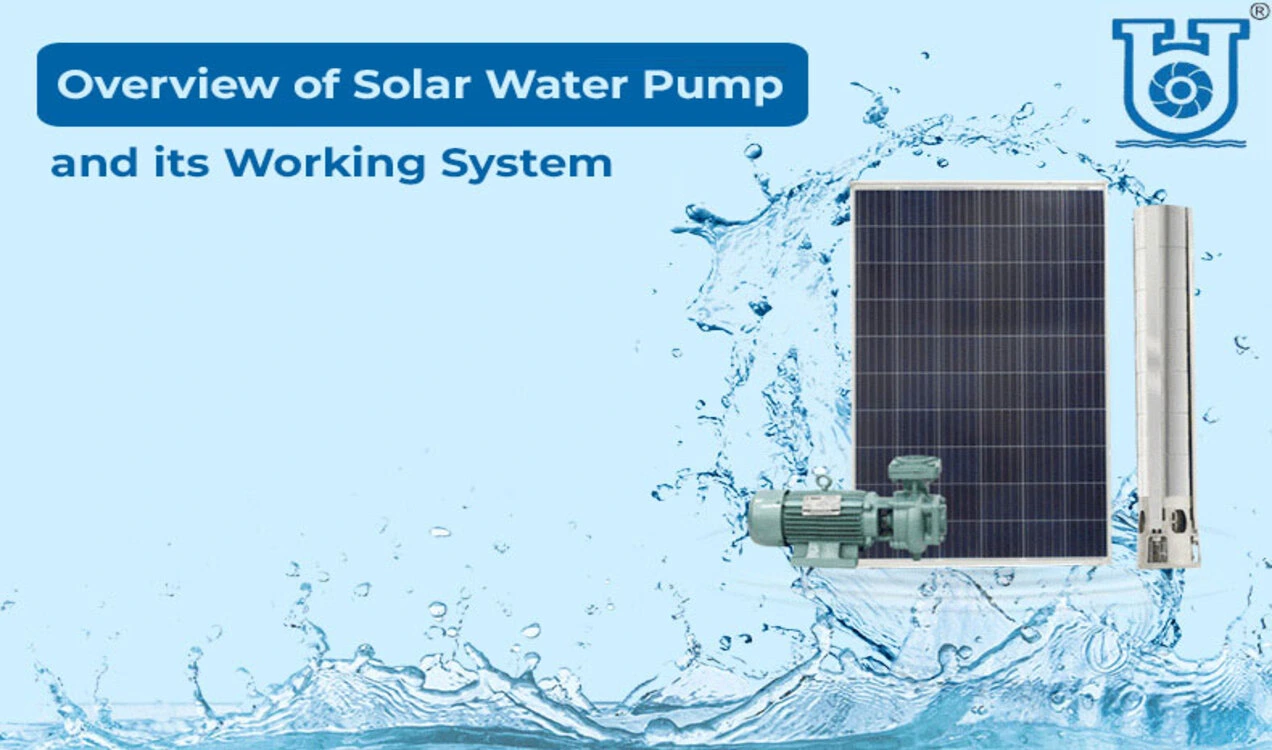Communities in rural and off-grid areas are increasingly turning to solar water pumps as a reliable source of clean water. These pumps are very efficient and economical because they are powered by solar energy. In this article, we will provide an overview of solar water pumps and their working system.
What is a Solar Water Pump?
A solar water pump is a type of pump that uses energy from the sun to pump water. Solar water pumps are often used in rural areas where access to electricity is limited or non-existent.
The Working System of a Solar Water Pump:
The mechanism of a solar water pump is rather straightforward. The solar panels, the controller, and the pump are its three primary parts.
Solar Panels:
The system’s beating heart is the solar panels. They gather solar energy and transform it into electrical energy. The amount of sunlight that solar panels get determines how much energy they can produce. They produce more energy the more sunshine they receive.
Controller:
The controller is in charge of controlling how much electricity the solar panels produce. It controls how much energy is given to the pump and makes sure that it runs effectively. The controller also guards against short circuits, overcurrents, and overvoltages for the pump.
Pump:
The pump is responsible for moving the water from the source to the desired location. The type of pump used in a solar water pump system depends on the application. For example, a submersible pump is installed in wells and boreholes, whereas a surface pump is utilised for irrigation and other surface water applications.
Types of Solar Water Pumps:
- DC pumps are designed to operate on the DC voltage produced by the solar panels. They are excellent for distant and off-grid places because of their high efficiency and ability to run at low voltages. DC pumps are also more affordable than AC pumps.
- Conversely, AC pumps are made to work with the AC power that an inverter generates. They are more powerful than DC pumps and are better suited for larger water pumping applications. AC pumps are more expensive than DC pumps but can be used in conjunction with a battery bank to provide backup power.
Advantages of Solar Water Pumps:
Cost-effective: Solar water pumps have lower operating costs than traditional pumps. They require no fuel and have minimal maintenance costs.
Environmentally friendly: Solar water pumps are an environmentally preferable option to conventional pumps because they don’t emit any hazardous gases.
Reliable: Because they don’t rely on outside power sources, solar water pumps are quite dependable.
Simple to install: Solar water pumps are simple to install, and their modular construction makes it simple to extend them as necessary.
Scalable: Solar water pumps are perfect for both small- and large-scale projects since they are easily scaled to meet the requirements of various applications.
Applications of Solar Water Pumps:
There are numerous uses for solar water pumps, including:
Irrigation: Solar water pumps are utilized to supply water for irrigation in rural and off-grid locations.
Livestock watering: Solar water pumps are used to provide water for livestock in remote and off-grid locations.
Domestic water supply: Solar water pumps are used to provide clean and reliable water for households in remote and off-grid locations.
Fountain and pond management: Solar water pumps are used to circulate water in fountains and ponds, helping to maintain the health of the water.
Disaster relief: Solar water pumps can be quickly deployed to provide water in disaster-affected areas, where traditional infrastructure has been destroyed.
Aquaculture: Solar water pumps are used in fish farms and other aquaculture systems to circulate water and maintain optimal water quality.
Maintenance:
A solar water pump system requires little maintenance, but it is crucial to keep the solar panels clear of debris because this can lower their effectiveness.
- Inspect the pump regularly for any signs of damage or leaks.
- Clean the panels regularly to ensure they can absorb maximum sunlight.
- Check the batteries regularly and replace them when necessary.
- Keep the controller unit free from dust and dirt.
- Have a qualified technician check the system annually to ensure everything is in working order.
You can also read this blog: Differentiating AC Solar Submersible Pumpset from DC Solar Submersible Pumpset
Conclusion:
Solar water pumps are a more cost-effective and ecologically beneficial alternative to regular electric or diesel-powered pumps. They are suitable for both little and large projects since they are incredibly trustworthy and easily adaptable to fulfil the needs of numerous industries. With the increasing demand for safe and dependable water in rural and off-grid locations, solar water pumps to increase water availability in underdeveloped countries.
Unnati Pumps solar pumps last for years and they are made to withstand harsh conditions. You can save electricity cost and get your solar panels installed easily by us.


